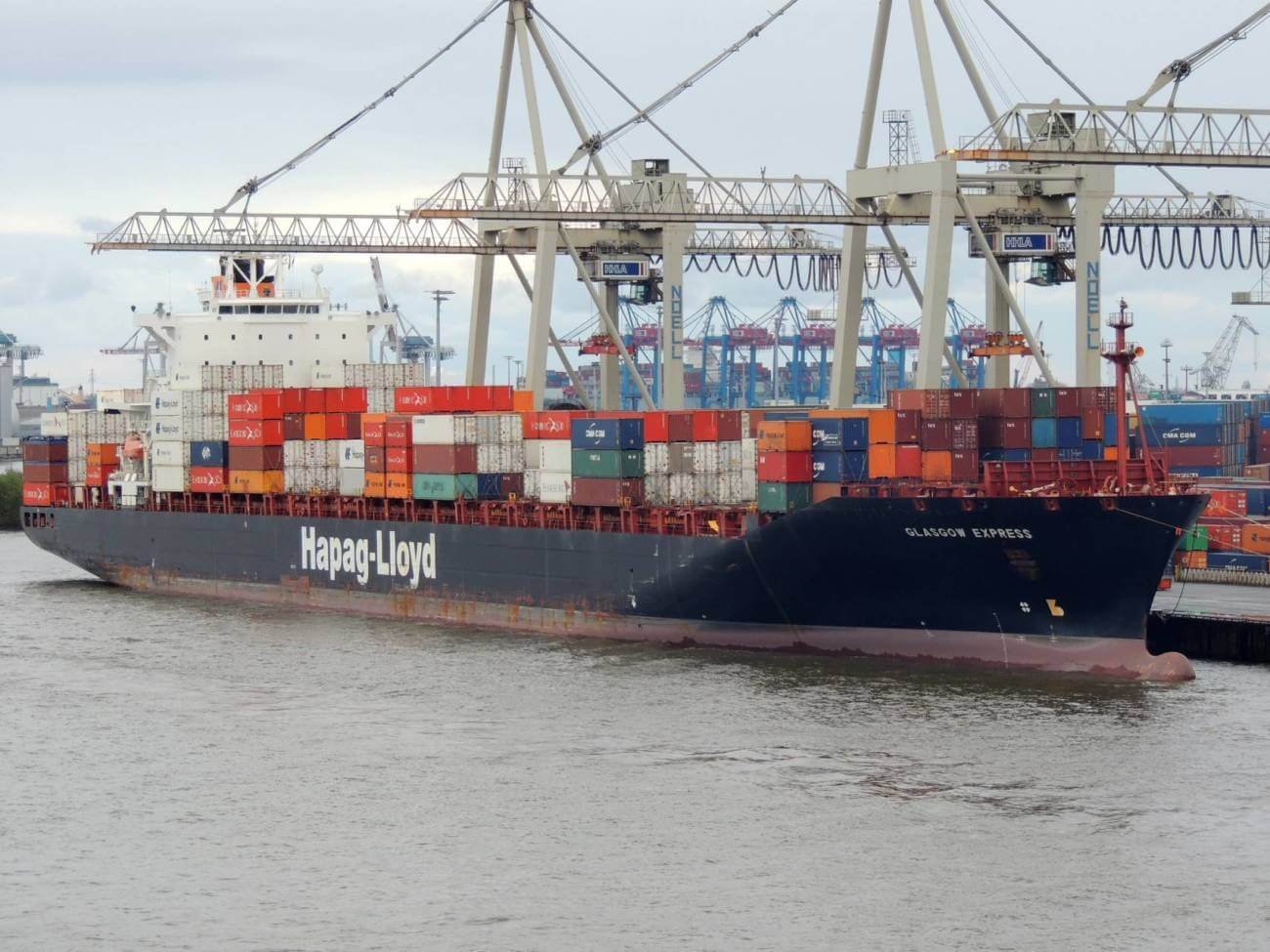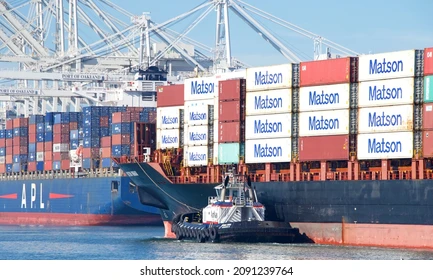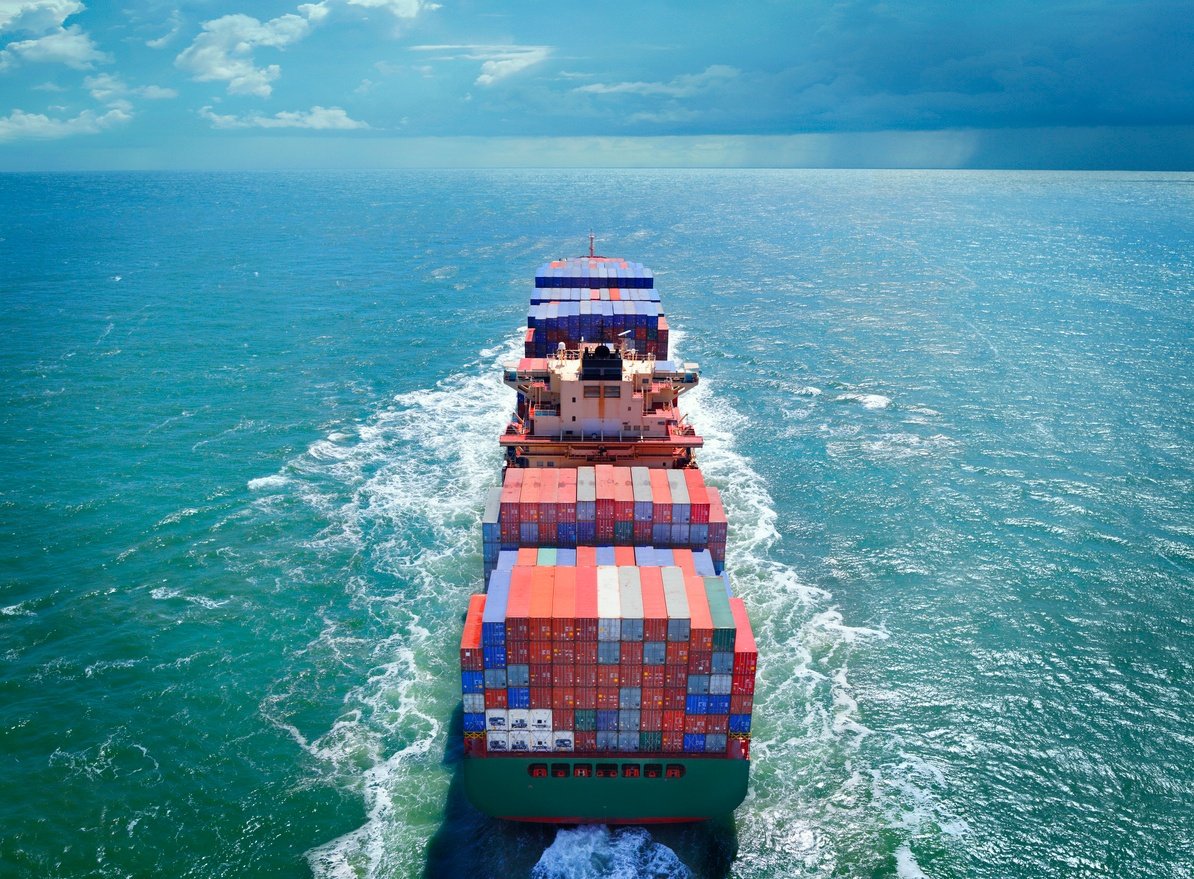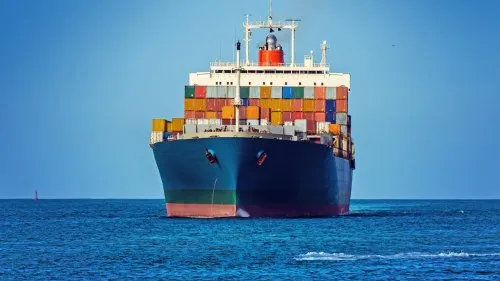
Key takeaways
1. LCL shipping is a cost-effective option for businesses that do not have enough cargo to fill an entire container. Regular LCL involves consolidating multiple shippers’ cargo into a single container for transportation.
2. Matson’s Fast Boat LCL service offers an expedited option for LCL shipments. It provides faster transit times compared to traditional LCL services.
3. The primary advantage of Matson’s Fast Boat LCL is speed. It is designed to minimize transit times and deliver cargo to its destination more quickly. This can be beneficial for time-sensitive shipments or businesses that value faster delivery.
4. Matson’s Fast Boat LCL service typically offers fixed weekly sailings, ensuring a reliable and consistent schedule. This can help businesses plan their logistics more effectively and reduce uncertainty associated with transit times.
5. While Regular LCL is generally more cost-effective than full container shipping, Matson’s Fast Boat LCL may come at a higher cost due to the premium for faster transit times. Businesses should carefully evaluate the value of quicker delivery against the additional cost.
6. Matson’s Fast Boat LCL service may be particularly beneficial for businesses with urgent shipments, perishable goods, or time-sensitive inventory replenishment needs. The faster transit times can help minimize stockouts and meet customer demands more efficiently.
7. It is essential for businesses to consider their specific shipping requirements when choosing between Regular LCL and Matson’s Fast Boat LCL. Factors such as cost, transit time, shipment volume, and the nature of the goods being transported should all be taken into account.
8. Both Regular LCL and Matson’s Fast Boat LCL offer advantages depending on the unique needs of the business. Regular LCL provides cost savings for non-urgent shipments, while Matson’s Fast Boat LCL offers speed and reliability for time-critical cargo.
9. It is advisable for businesses to work closely with logistics providers and freight forwarders to assess their shipping requirements and determine the most suitable option between Regular LCL and Matson’s Fast Boat LCL.
10. Ultimately, the decision between Regular LCL and Matson’s Fast Boat LCL should be based on a careful evaluation of cost, transit time, shipment urgency, and specific business needs to ensure optimal shipping performance and customer satisfaction.

Understanding LCL Freight Speed
Less than Container Load shipping, or LCL shipping, combines several shipments from various clients into a single container. The time it takes for a shipment to arrive at its destination is referred to as the speed of LCL freight.
Businesses that depend on prompt delivery of their goods must comprehend LCL freight speed. Your needs can be best served by comparing the speed of Matson’s Fast Boat LCL with that of Regular LCL.
Features of Regular LCL
Regular LCL offers several features that make it a popular choice for businesses. These features include:
– Flexibility: Regular LCL allows businesses to ship smaller quantities of goods without needing to fill an entire container. This flexibility is beneficial for businesses with varying shipment volumes.
– Cost-effectiveness: Regular LCL can be a cost-effective option for smaller shipments, as businesses only pay for the space they use in the container.
– Global coverage: Regular LCL services are available worldwide, making it a convenient option for businesses with international shipping needs.
These features make Regular LCL a reliable and efficient choice for many businesses.
Advantages of Matson’s Fast Boat LCL
Matson’s Fast Boat LCL offers several advantages over Regular LCL that can significantly impact the speed of your shipment. These advantages include:
– Expedited transit times: Matson’s Fast Boat LCL is designed to provide faster transit times compared to Regular LCL. This can be advantageous for businesses that require quick delivery of their goods.
– Priority handling: Shipments through Matson’s Fast Boat LCL receive priority handling, ensuring that they are processed and delivered promptly.
– Reliable schedules: Matson’s Fast Boat LCL operates on reliable schedules, minimizing the risk of delays and providing businesses with greater predictability.
These advantages make Matson’s Fast Boat LCL a compelling option for businesses that prioritize speed and efficiency.
Comparison of Transit Times
When comparing the transit times of Regular LCL and Matson’s Fast Boat LCL, it’s essential to consider the specific routes and destinations involved. Transit times can vary depending on factors such as distance, port congestion, and weather conditions.
Matson’s Fast Boat LCL generally offers faster transit times compared to Regular LCL. However, it’s crucial to consult with the shipping provider and review their published schedules to get accurate and up-to-date information on transit times for your specific shipment.
Factors to Consider When Choosing Between Regular LCL and Matson’s Fast Boat LCL
When deciding between Regular LCL and Matson’s Fast Boat LCL, it’s important to consider the following factors:
– Urgency: If your shipment requires quick delivery, Matson’s Fast Boat LCL may be the preferred choice due to its expedited transit times.
– Budget: Regular LCL can be a cost-effective option for businesses with smaller shipments, as they only pay for the space they use in the container. Matson’s Fast Boat LCL may have higher costs but offers faster delivery.
– Destination: The availability of Matson’s Fast Boat LCL service may vary depending on the destination. Ensure that the service is available for your desired destination before making a decision.
– Special requirements: If your shipment has specific handling or delivery requirements, consult with the shipping provider to ensure that they can accommodate them.
Considering these factors will help you determine whether Regular LCL or Matson’s Fast Boat LCL is the right choice for your freight needs.
PAQ
What is the difference between LCL and FLC?
LCL, or Less than Container Load, and FCL, or Full Container Load, are two common shipping methods used in the logistics industry. The main difference between LCL and FCL lies in the amount of cargo being shipped.
With LCL, multiple shipments from different customers are consolidated into a single container, making it a cost-effective option for businesses with smaller shipment volumes. On the other hand, FCL involves filling an entire container with one customer’s cargo, providing more control over the shipping process and potentially offering cost savings for larger shipments.
While LCL is suitable for businesses that do not require a full container for their shipments, FCL is preferred for larger quantities of goods that can fill an entire container. Understanding the differences between LCL and FCL can help businesses choose the most appropriate shipping method for their specific needs and budget.

How much does LCL cost per CBM?
The cost of LCL (Less than Container Load) per CBM (Cubic Meter) can vary depending on various factors such as the shipping provider, the route, and the specific details of the shipment. Typically, LCL costs are calculated based on the volume of goods being shipped rather than the weight, making it a cost-effective option for businesses with smaller shipments. It’s important to consult with your shipping provider to get an accurate quote for your specific shipment and to understand any additional charges that may apply. Overall, LCL can be a budget-friendly choice for businesses looking to ship smaller quantities of goods without the need to fill an entire container.
What is the weight limit for LCL?
The weight limit for LCL (Less than Container Load) shipments can vary depending on the shipping provider and the specific details of the shipment. Generally, LCL shipments have weight limits ranging from 100 kg to 1000 kg per cubic meter, with some providers offering flexibility based on the type of goods being shipped. It’s essential to consult with your shipping provider to understand the weight limits for your specific shipment and to ensure that your goods comply with any restrictions that may apply. Understanding the weight limit for LCL shipments is crucial for businesses looking to efficiently and cost-effectively transport smaller quantities of goods without needing to fill an entire container.
How much more expensive is LCL vs FCL?
When comparing the cost difference between LCL and FCL, it’s essential to consider various factors that can impact pricing. LCL, or Less than Container Load, is typically more cost-effective for businesses with smaller shipment volumes, as they only pay for the space they use in a shared container. On the other hand, FCL, or Full Container Load, may be more expensive upfront due to the need to fill an entire container, but it can offer cost savings for larger quantities of goods.
The cost disparity between LCL and FCL can vary depending on the shipping provider, route, and specific details of the shipment. It’s important for businesses to carefully evaluate their shipping needs, budget constraints, and volume of goods to determine which option is the most cost-effective for their specific situation. By understanding the cost implications of LCL vs FCL, businesses can make an informed decision that aligns with their budget and freight requirements.
In conclusion, comparing Regular LCL to Matson’s Fast Boat LCL reveals distinct advantages and considerations for businesses in their shipping decisions. Regular LCL offers cost-effectiveness and consolidation benefits, making it suitable for non-urgent shipments with lower budget constraints. On the other hand, Matson’s Fast Boat LCL prioritizes speed and reliability, catering to time-sensitive shipments and businesses that value faster delivery. The choice between the two options depends on factors such as cost, transit time, shipment urgency, and specific business requirements. Collaboration with logistics providers and freight forwarders is crucial for assessing individual shipping needs and determining the most suitable option. Ultimately, businesses should carefully evaluate the trade-offs between cost and speed to optimize their shipping performance and meet customer expectations effectively.
Hope this article was helpful for more checkout our previous blog post by clinking here


